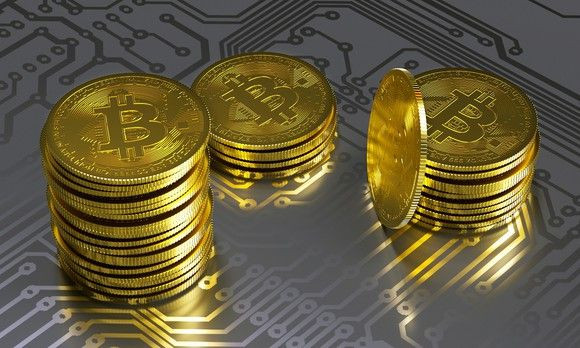Which Cryptocurrencies Have The Fastest Transaction Speeds?

This article originally appeared in the Motley Fool.
The stock market may be the most traditional path investors have used to create wealth over time, but in recent months, it's taken a clear back seat to cryptocurrencies. Since 2017 began, the combined value of all cryptocurrencies jumped from less than $18 billion to as high as $836 billion just a week ago. We're talking about an increase in value of more than 4,500% in about a 53-week span. It has, by comparison, taken the broad-based S&P 500 decades to deliver similar returns.
The Emergence Of Blockchain Pushes Crypto Valuations Into The Stratosphere
Though there are no shortage of catalysts behind this rally in digital currencies, much of the credit belongs to the emergence of blockchain technology. Blockchain is the digital and decentralized ledger that underpins virtual coins and is responsible for logging all transactions, without the need for a financial intermediary, like a bank.
The push toward blockchain technology, and cryptocurrencies in general, has everything to do with perceived inadequacies in the current financial payment system. In particular, the potentially long wait times associated with validating a transaction or payment, and high transaction fees as a result of banks acting as a middlemen, are what consumers loathe the most. Blockchain attempts to address these issues.
For instance, blockchain transactions are being validated 24 hours a day, seven days a week, meaning they often process in seconds, to perhaps a few hours at the most, compared to waiting up to three to five days in the case of cross-border transactions. Also, without the need for a financial middleman, it's presumed that transaction costs will be considerably smaller. Finally, the noted decentralization means there's no central hub where transaction information is stored. This ensures that no single party will have control over a cryptocurrency, and that cybercriminals could never bring a digital currency to its knees.

Which Cryptocurrencies Have The Fastest Transaction Speeds?
Ultimately, though, what matter is whether blockchain technology has the capacity to process transactions with a similar expediency as today's networks. If they don't have the ability to meet or exceed current networks, then blockchain could struggle to get off the ground.
Recently, HowMuch.net analyzed the transaction speeds of six of the largest cryptocurrencies by market cap relative to payment service giants Visa (NYSE:V) and PayPal (NASDAQ:PYPL). The results, as you'll see, demonstrate some striking differences between traditional payment networks and digital currencies, as well as within the cryptocurrency market itself.
Total transactions per second:
- Visa: 24,000
- Ripple (CCC: XRP-USD): 1,500
- PayPal: 193
- Bitcoin Cash (CCC: BCH-USD): 60
- Litecoin (CCC: LTC-USD): 56
- Dash (CCC: DASH-USD): 48
- Ethereum (CCC: ETH-USD): 20
- Bitcoin (CCC: BTC-USD): 7
Here's What Stands Out About This Transaction-Speed Data
The first thing that probably stands out is just how far ahead Visa is from the rest of the pack. Visa has had many decades to adapt and upgrade its payment processing infrastructure and networks, leading to a transaction rate of up to 24,000 per second. That's unlikely to be challenged anytime soon, so breathe easy, Visa shareholders.
What might be an even bigger shock is just how far ahead Ripple is relative to mobile payment platform PayPal, as well as its crypto peers. At 1,500 transactions per second, Ripple is more than six times faster than PayPal. What's more, Ripple's transactions comes in at just a fraction of a cent, which could prove significantly more attractive than PayPal, depending on the sender and receiver of funds.
You might also be shocked at just how poorly bitcoin and Ethereum perform relative to their peers. Bitcoin and Ethereum are processing a mere seven and 20 transactions per second, respectively. However, keep in mind that both bitcoin's and Ethereum's blockchains are being scaled considerably more than Dash and Ripple. The simple fact that bitcoin and Ethereum are popular is a big reason it takes so much longer to process and settle transactions on these networks. While it doesn't excuse slow processing times, it does help explain the big gap.
Also, pay attention to Dash and Litecoin, which are both processing transactions quicker, and for a lower cost, than bitcoin and Ethereum. Litecoin, which some have nicknamed "bitcoin-Lite," has aspirations of significantly growing its merchant network. Though founder Charlie Lee believes in cooperation with bitcoin, not competition, it could very well be the greatest competition bitcoin faces.
Meanwhile, Dash is part of the burgeoning privacy-coin movement. Privacy coins take the perceived privacy and anonymity associated with blockchain transactions and cranks it up a whole bunch in order to conceal the identity of the sender and receiver of funds. To see that a leading privacy coin is nearly performing on par with Litecoin and Bitcoin Cash with regard to transaction processing speed is impressive.
Two Big Blockchain Concerns
However, the emergence of blockchain technology is also no guarantee of success.
One of the biggest concerns revolves around just how well they'll perform once fully ramped up. Bitcoin and Ethereum are substantially slower than PayPal and Visa as a result of being a popular destination for cryptocurrency users and/or enterprise customers. Yes, Ripple offers a substantially faster network now, but it remains to be seen what happens if it gains a number of banking clients and moves beyond just a handful of real-world tests. Blockchain hasn't really been put to the test yet, and until it has, it would be foolish (with a small "f") to assume it can keep up with traditional payment networks.
We should also remember that the barrier to entry among cryptocurrencies is incredibly low. It takes only time, money, and a team that understands how to write computer code, to develop blockchain technology and a tethered virtual coin. This suggests that today's best blockchain could be supplanted with relative ease by a newcomer.
Few would argue that blockchain technology has game-changing potential. But until we actually see that potential move well beyond demos and small-scale projects, cryptocurrencies remain an extremely risky investment.
Sean Williams has no position in any of the stocks mentioned. The Motley Fool owns shares of and recommends PayPal Holdings and Visa. The Motley Fool has a disclosure policy.





















